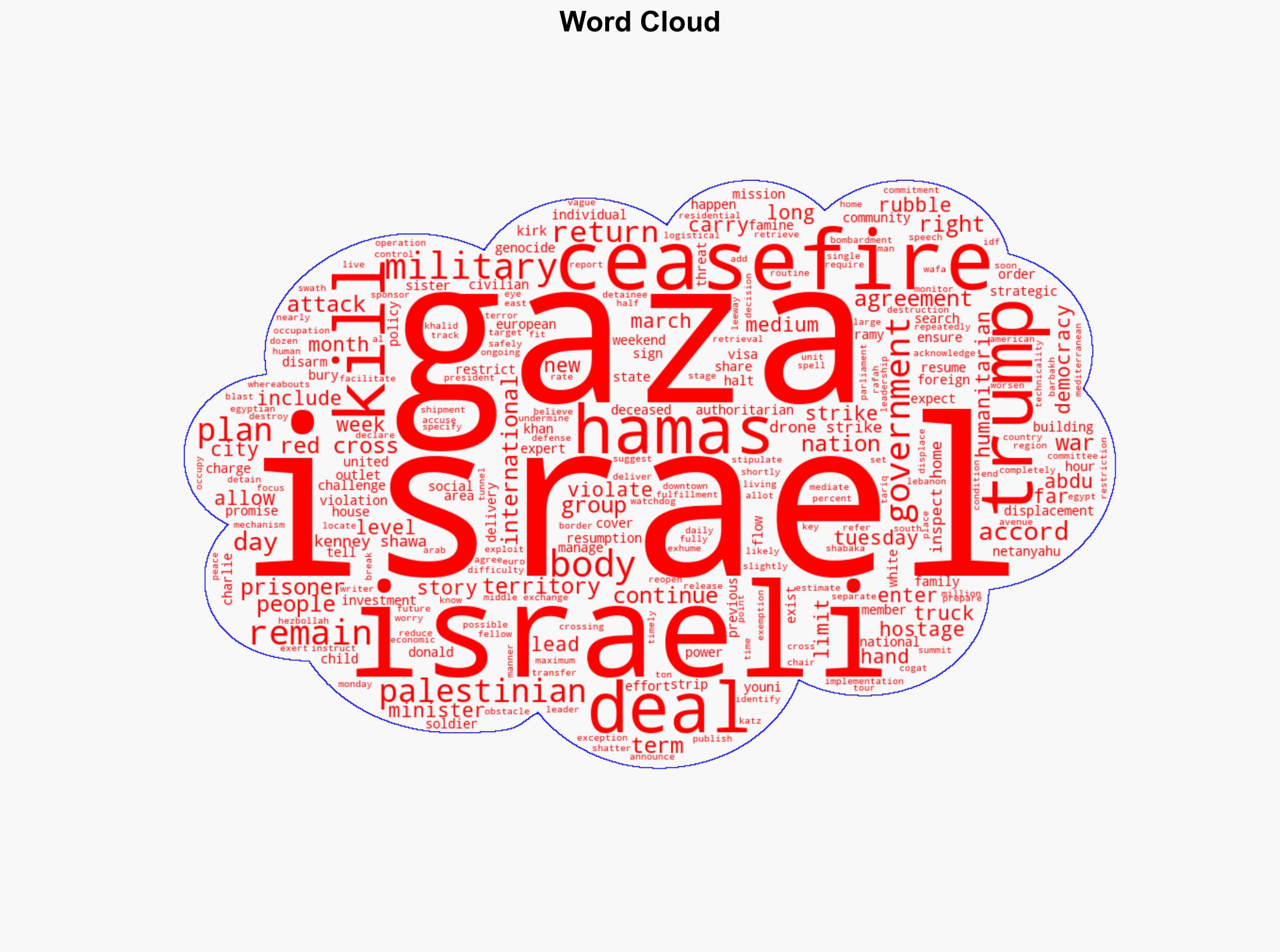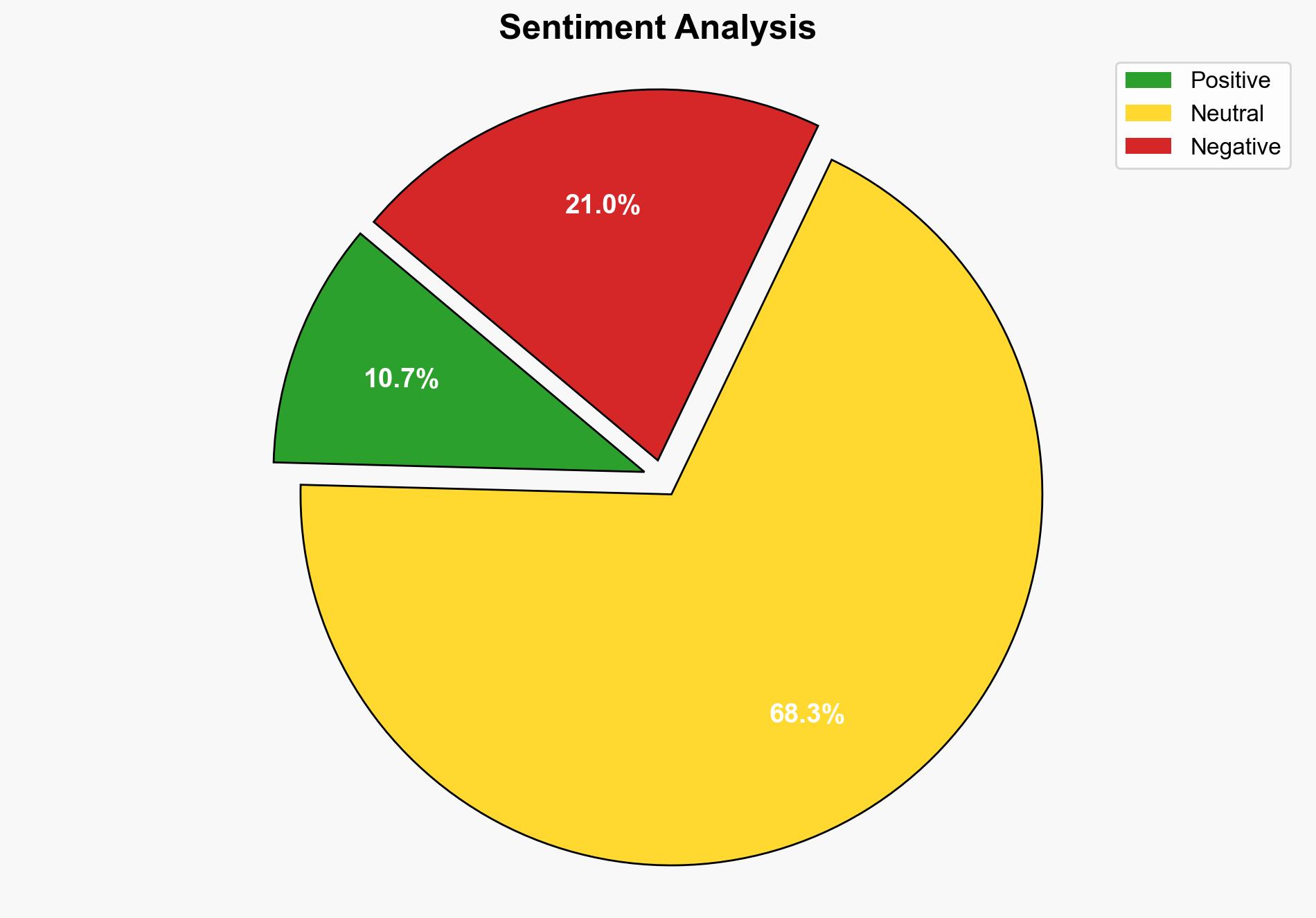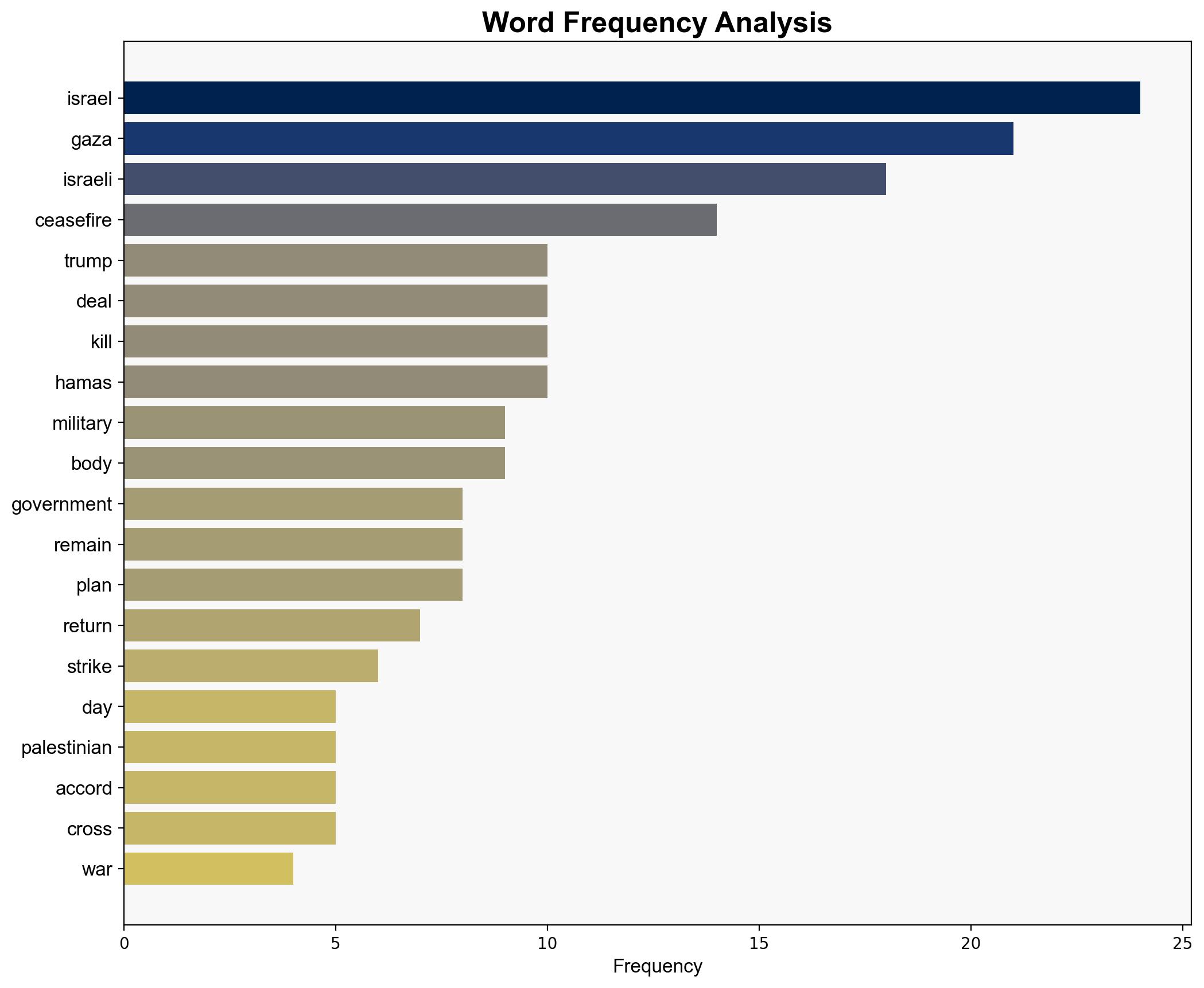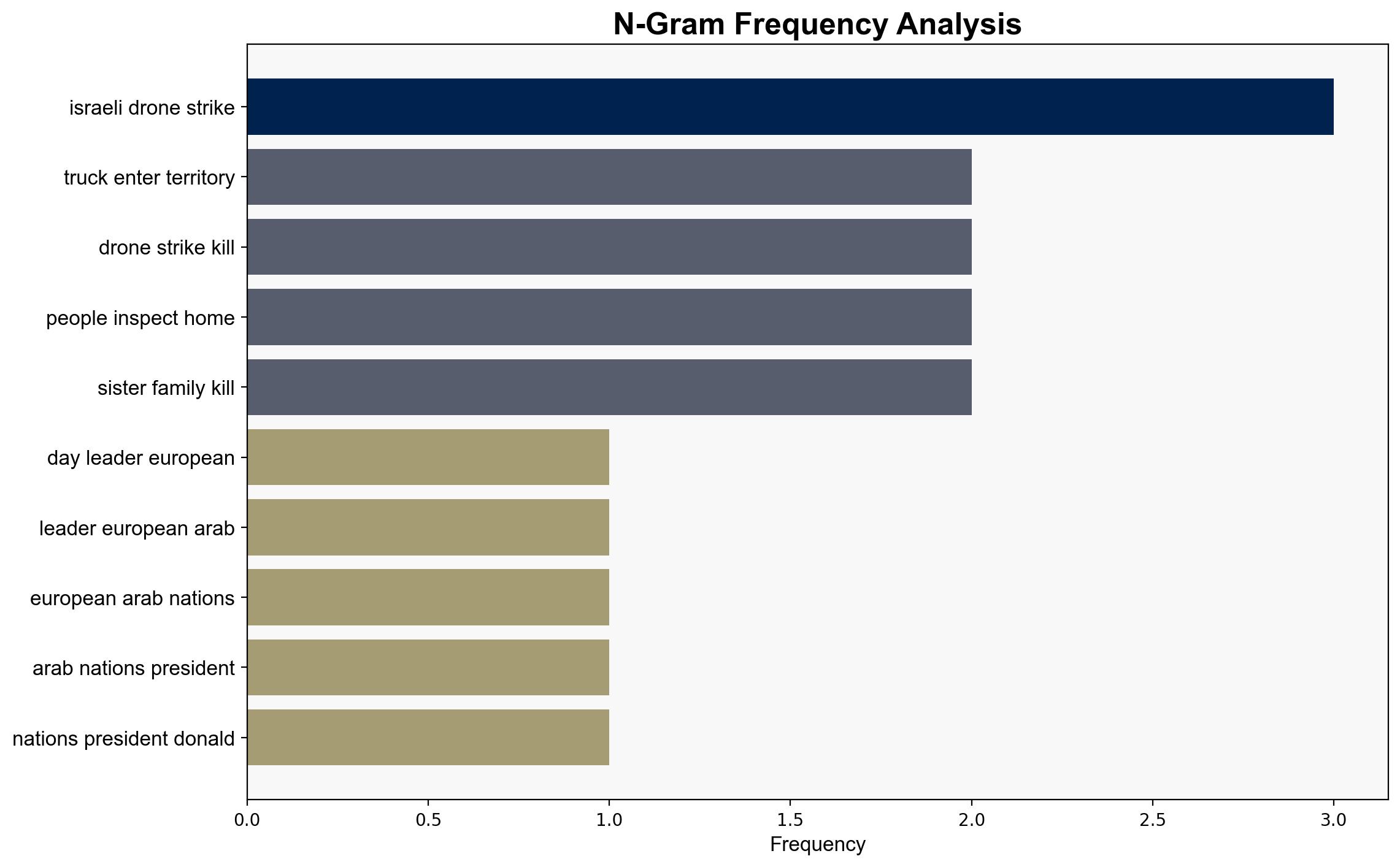Israels Mounting Ceasefire Violations in Gaza – The Intercept
Published on: 2025-10-15
Intelligence Report: Israels Mounting Ceasefire Violations in Gaza – The Intercept
1. BLUF (Bottom Line Up Front)
The analysis suggests a moderate confidence level that Israel’s actions are strategically aimed at maintaining pressure on Hamas while negotiating terms that favor Israeli security interests. The most supported hypothesis is that Israel is using ceasefire violations as leverage in ongoing negotiations. Recommended action includes diplomatic engagement to reinforce ceasefire terms and monitoring mechanisms to ensure compliance.
2. Competing Hypotheses
1. **Hypothesis 1**: Israel is intentionally violating the ceasefire to maintain strategic pressure on Hamas and influence negotiations in its favor. This hypothesis is supported by the pattern of violations and the strategic objectives outlined by Israeli officials.
2. **Hypothesis 2**: The ceasefire violations are primarily due to operational challenges and miscommunications within the Israeli military, rather than a deliberate strategy. This is supported by the logistical complexities and historical precedents of miscommunication in conflict zones.
Using ACH 2.0, Hypothesis 1 is better supported due to the alignment of violations with strategic statements from Israeli leadership and the timing of actions coinciding with negotiation phases.
3. Key Assumptions and Red Flags
– **Assumptions**: It is assumed that Israel’s military actions are directly influenced by political objectives. Another assumption is that Hamas has the capability and intent to fulfill its ceasefire obligations.
– **Red Flags**: The lack of independent verification of events and potential bias in reporting from both sides. The possibility of external actors influencing the narrative.
– **Blind Spots**: Limited visibility into internal decision-making processes within the Israeli government and military.
4. Implications and Strategic Risks
The ongoing ceasefire violations could escalate into broader conflict, impacting regional stability and international relations. Economic implications include disruptions in aid delivery and potential sanctions. Geopolitically, this could strain Israel’s relations with neighboring Arab nations and complicate U.S. diplomatic efforts in the region. The psychological impact on civilian populations in Gaza could lead to increased radicalization.
5. Recommendations and Outlook
- Engage in diplomatic efforts to reinforce the ceasefire terms and establish a robust monitoring mechanism involving international observers.
- Scenario Projections:
- **Best Case**: Successful diplomatic intervention leads to a stable ceasefire and resumption of humanitarian aid.
- **Worst Case**: Escalation into a broader conflict involving regional actors.
- **Most Likely**: Continued low-level violations with intermittent diplomatic engagements.
6. Key Individuals and Entities
– Donald Trump: Mentioned in the context of regional diplomatic efforts.
– Tariq Kenney Shawa: Cited as an expert providing analysis on the situation.
– Khalid Barbakh: Identified as a casualty in the conflict.
7. Thematic Tags
national security threats, regional focus, ceasefire compliance, diplomatic strategy




